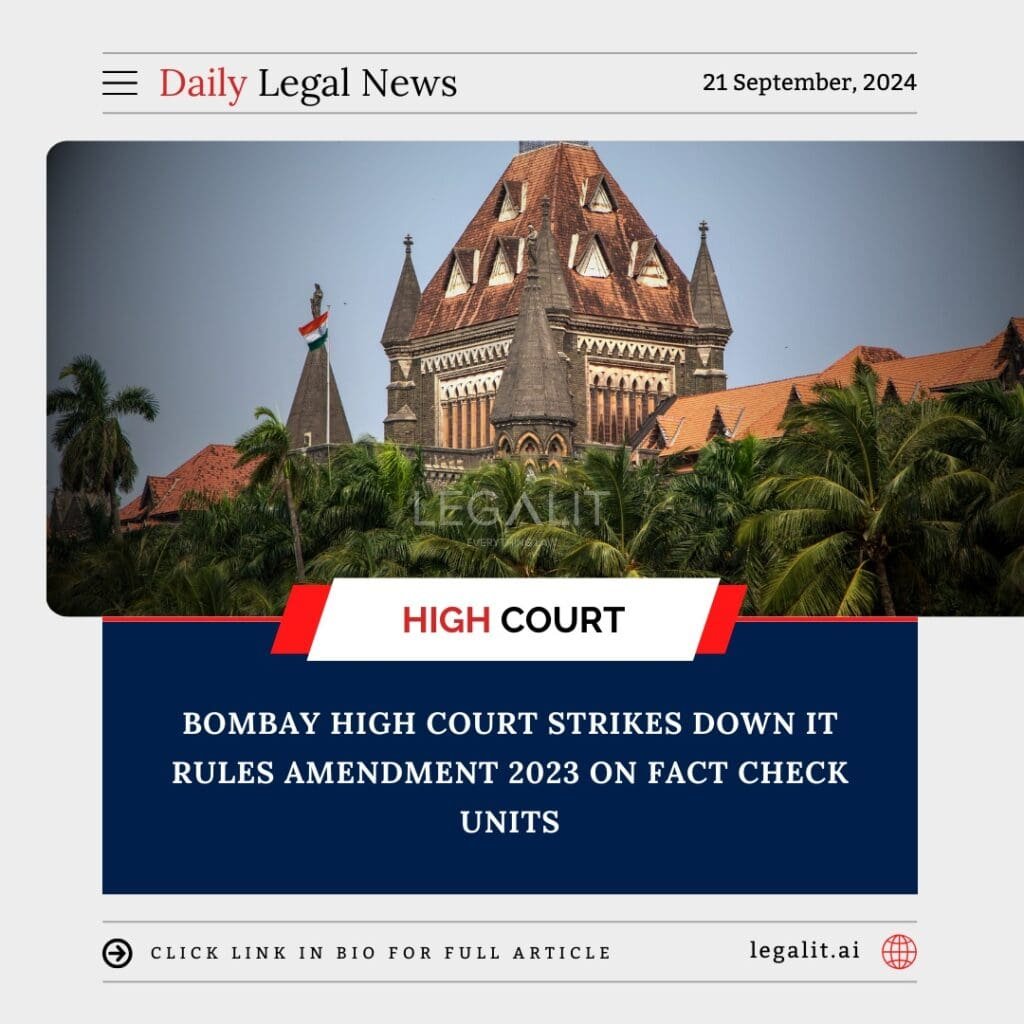
The Bombay High Court has ruled against the *2023 amendment to the Information Technology (IT) Rules, which sought to establish *fact-check units with the authority to determine the veracity of information shared online. This ruling marks a significant development in the ongoing discussions around digital rights, freedom of expression, and the regulation of online content in India.
Background of the IT Rules Amendment
The 2023 amendment aimed to empower designated fact-checking agencies to flag misinformation related to government policies and activities on social media platforms. Proponents of the amendment argued that it was necessary to combat the spread of fake news and disinformation, particularly in an era where digital communication is pervasive.
Court’s Findings
- Violation of Free Speech: The Bombay High Court found that the amendment posed a potential threat to the fundamental right to free speech and expression. The court emphasized that the mechanism established for fact-checking could lead to arbitrary censorship and stifle legitimate discourse.
- Lack of Clarity and Transparency: The ruling pointed out that the criteria for determining what constitutes misinformation were vague and lacked transparency. This ambiguity could result in misuse of power by authorities and hinder the ability of individuals to express their views freely.
- Judicial Oversight: The court highlighted the necessity of judicial oversight in matters involving content regulation. The absence of such oversight in the proposed amendment raised concerns about accountability and the potential for abuse.
- Impact on Media Freedom: By striking down the amendment, the court reaffirmed the importance of protecting the independence of media and journalistic practices, which play a crucial role in democratic societies.
Implications of the Ruling
- Strengthening Free Speech: This ruling reinforces the protection of free speech in the digital realm, ensuring that individuals can express their opinions without fear of arbitrary restrictions.
- Legal Precedent: The decision sets a legal precedent for future cases involving content regulation, potentially influencing how similar amendments and policies are crafted in the future.
- Government Response: The ruling may prompt the government to reevaluate its approach to combating misinformation, seeking alternative measures that respect constitutional rights while addressing the issue.
- Public Discourse: By rejecting the amendment, the court encourages a more open and robust public discourse, allowing for diverse viewpoints to be expressed and debated without undue interference.
Conclusion
The Bombay High Court’s decision to strike down the IT Rules Amendment 2023 on fact-check units underscores the judiciary’s role in safeguarding fundamental rights in the digital age. This ruling not only protects free speech and expression but also highlights the importance of clarity, transparency, and accountability in regulations governing online content. As the landscape of digital communication continues to evolve, the implications of this decision will resonate across legal, political, and social spheres in India.